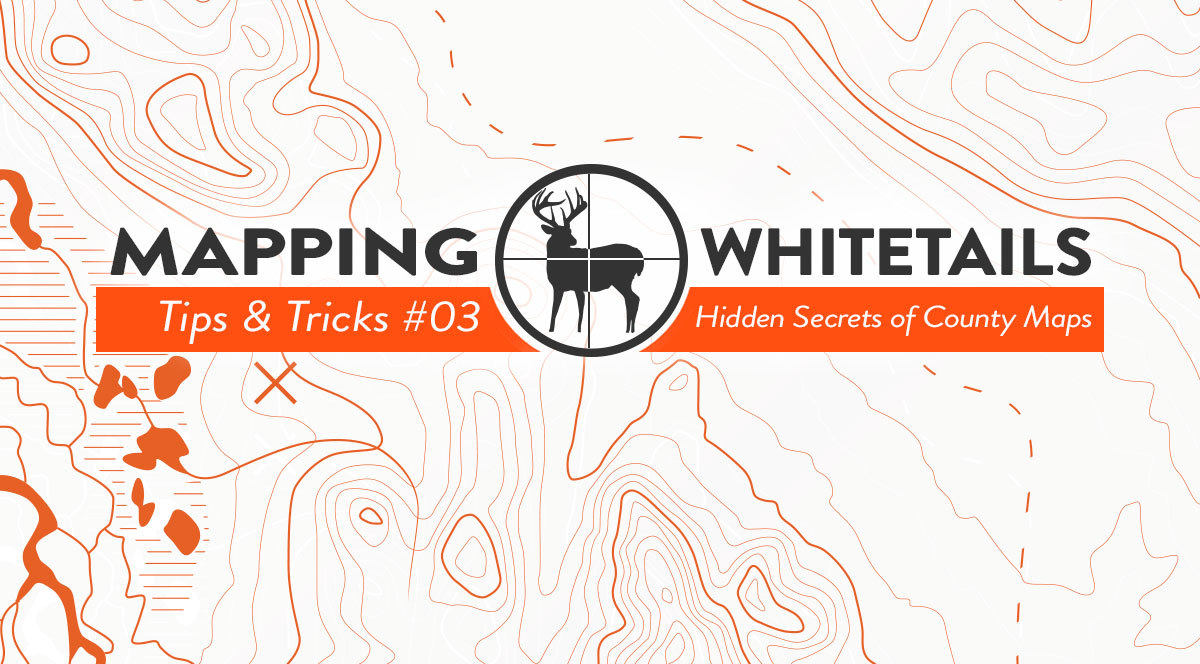Hopefully, you’ve had a chance to read, learn, and quiz yourselves in Mapping Whitetails #01 and #02 because this week we are going to take a little bit different approach and focus in on a valuable tool that many hunters don’t know about. With archery season opening in the next couple weeks, many hunters are out knocking on doors and asking for permission from landowners to hunt. Rather than going in blind, it’s a smart idea to already know the boundaries for the property of which you are seeking permission. Today’s technology allows us to do just that. With the help of interactive county GIS maps, understanding property boundaries, as well as who owns what has never been easier.
Why You Need to be Using Them
There are several reasons every hunter should be scouring their counties interactive GIS maps. First off, they display property boundaries along with the info on those who own them. Boundaries, acreage, owner’s name, and owner’s address are all typical attributes found on these maps. In addition to the info provided, you can select the aerial or orthophoto to overlay the boundaries on, which is a huge advantage for you as a hunter. What this helps with is the ability to see how much land someone owns and if it looks to be a decent hunting property.
Another benefit of the interactive maps is that they show you potential access routes to a property. I’ve hunted properties where I thought I only had one way in and then I checked the map to find they have an easement to another road on the opposite side of the property, which allowed me to hunt much more effectively.
Thirdly, these maps aren’t just useful for those seeking permission, but ALL hunters. Let’s say you hunt public land, these maps can help prevent trespassing issues. They can also provide you with the insight as to which potential landowner to ask about seeking permission to access the backside of landlocked property.
All in all, these interactive maps are a true hidden gem for hunters!
How to Find Them
Having consulted around the country in many states, I know that most counties offer some type of interactive map with property lines marked. However, I have run into a few in the Deep South where the county courthouse is still the only place to access plat information. So, for those counties that do have them (which is most), here’s the basic rundown on how I was able to find these hidden gems the majority of the time.
- Start with a Google Search
- Open Google and type in your county’s name followed by “Interactive GIS Map”
- Example: Ozaukee County Interactive GIS Map

- Click on the link to the official county GIS page.
- Click on the GIS Interactive Map link
- Once you open the interactive map you can now start to explore the area and tools within the mapping software.
- Again, every county is different. Some are very user friendly, others require a lot of digging and playing around. This one in particular is high on the user friendly scale compared to a lot. All I have to do is click the “info” icon and then click any parcel of land and it will give me the details I’m looking for – landowner information and acreage.

Here is how most county maps will look when they first appear. From here I always zoom to my area and turn on the aerial/orthophoto view to see the landscape.

Outlined in red are the key bits of information you should look for on your county’s website. Many have different layouts, but for the most part they all provide the same information.
Homework
Instead of a quiz this week, I challenge you all to hop onto your county’s website to see what you can learn. If you really feel up to it, contact a few landowners about gaining permission to hunt their property. An added bonus I’ve found over the years is that if you can bring a printed map with property lines along with you when you’re seeking permission or pull one up on your phone, it builds an instantaneous bit of trust between you and the landowner. It says you are a responsible hunter, that you took your time doing research, and that you respect and know the property boundaries – all very important credentials when it comes to gaining the trust of a landowner.








